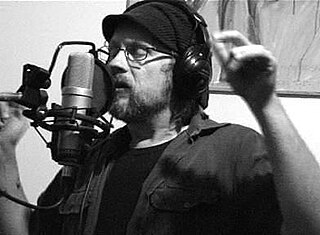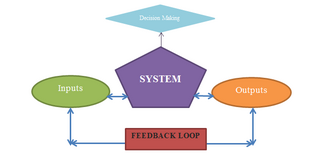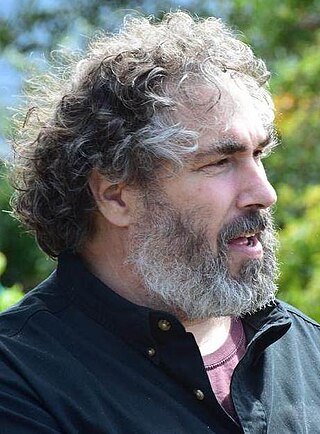Related Research Articles

The Goodies were a trio of British comedians: Tim Brooke-Taylor, Graeme Garden and Bill Oddie. The trio created, wrote for and performed in their eponymous television comedy show from 1970 until 1982, combining sketches and situation comedy.

Permaculture is an approach to land management and settlement design that adopts arrangements observed in flourishing natural ecosystems. It includes a set of design principles derived using whole-systems thinking. It applies these principles in fields such as regenerative agriculture, town planning, rewilding, and community resilience. The term was coined in 1978 by Bill Mollison and David Holmgren, who formulated the concept in opposition to modern industrialized methods, instead adopting a more traditional or "natural" approach to agriculture.

Bruce Charles "Bill" Mollison was an Australian researcher, author, scientist, teacher and biologist. In 1981, he was awarded the Right Livelihood Award "for developing and promoting the theory and practice of permaculture".
The following outline is provided as an overview of and topical guide to sustainable agriculture:
David Holmgren is an Australian environmental designer, ecological educator and writer. He is best known as one of the co-originators of the permaculture concept with Bill Mollison.

"Bart vs. Australia" is the sixteenth episode of the sixth season of the American animated television series The Simpsons. It originally aired on Fox in the United States on February 19, 1995. In the episode, Bart is indicted for fraud in Australia, and the family travels to the country so Bart can apologize.

A swale is a shady spot, or a sunken or marshy place. In US usage in particular, it is a shallow channel with gently sloping sides. Such a swale may be either natural or human-made. Artificial swales are often infiltration basins, designed to manage water runoff, filter pollutants, and increase rainwater infiltration. Bioswales are swales that involve the inclusion of plants or vegetation in their construction, specifically.

The Special Period, officially the Special Period in the Time of Peace, was an extended period of economic crisis in Cuba that began in 1991 primarily due to the dissolution of the Soviet Union and the Comecon. The economic depression of the Special Period was at its most severe in the early to mid-1990s. Things improved towards the end of the decade once Hugo Chávez's Venezuela emerged as Cuba's primary trading partner and diplomatic ally, and especially after the year 2000 once Cuba–Russia relations improved under the presidency of Vladimir Putin.

Geoff Lawton is a British-born Australian permaculture consultant, designer, teacher and speaker. Since 1995 he has specialized in permaculture education, design, implementation, system establishment, administration and community development.
Peter Andrews is an Australian racehorse breeder and grazier from Bylong in the Upper Hunter Valley of New South Wales. He is known for his pioneering work in landscape regeneration.

Andrew Richard Matthew Garton is an Australian filmmaker, musician and lecturer in media and communications.

Regenerative design is an approach to designing systems or solutions that aims to work with or mimic natural ecosystem processes for returning energy from less usable to more usable forms. Regenerative design uses whole systems thinking to create resilient and equitable systems that integrate the needs of society with the integrity of nature. Regenerative design is an active topic of discussion in engineering, landscape design, food systems, and community development.

The terms transition town, transition initiative and transition model refer to grassroot community projects that aim to increase self-sufficiency to reduce the potential effects of peak oil, climate destruction, and economic instability through renewed localization strategies, especially around food production and energy usage. In 2005, the founding of Transition Town Totnes in the United Kingdom became an inspiration for other groups to form. The Transition Network charity was founded in early 2007, to support these projects. A number of the groups are officially registered with the Transition Network. Transition initiatives have been started in locations around the world, with many located in the United Kingdom and others in Europe, North America and Australia. While the aims remain the same, Transition initiatives' solutions are specific depending on the characteristics of the local area.

Monty Python: Almost the Truth is a 2009 television documentary series in six parts that covers 40 years of the surreal comedy group Monty Python, from Flying Circus to present day projects such as the musical Spamalot. The series highlights their childhood, schooling and university life, and pre-Python work. The series featured new interviews with surviving members John Cleese, Terry Gilliam, Eric Idle, Terry Jones and Michael Palin, alongside archive interview footage of Graham Chapman and interviews with several associates of the Pythons, including Carol Cleveland, Neil Innes and Chapman's partner David Sherlock, along with commentary from modern comedians.
"Go Bullfrogs!" is the sixth episode of the third season of the American sitcom Modern Family, and the series' 54th episode overall. "Go Bullfrogs!" first aired on October 19, 2011, on ABC. The episode was written by Abraham Higginbotham and was directed by Scott Ellis. It featured guest star Gilles Marini as Julian.

Paul Wheaton is an American permaculture author, master gardener, software engineer, and disciple of the natural agriculturist Sepp Holzer. He is known for writing his book, "Building a Better World in Your Backyard", founding Permies, the largest website devoted to permaculture, as well as for creating and publishing articles, videos, and podcasts on the subject of permaculture.
Visionaries: Small Solutions to Enormously Large Problems is an Australian television series of documentary films written and directed by Tony Gailey and Julian Russell. Each of the seven films examines the work of a living person who is a revolutionary thinker in their field. What the subjects have in common is a creative contribution to humanity that has the potential to elicit a paradigm shift. They either apply a pragmatic conceptual framework for addressing global socioeconomic problems, or a radical scientific model for understanding a system.

An herb spiral is a three dimensional garden bed for the cultivation of culinary herbs. The herb spiral is an example of permaculture design. It enables a variety of plants with different needs to grow in a small space and makes it possible to cater to the smallest space habitat requirements of plants of different climatic zones.
The Seed Savers' Network (SSN) is an Australian not-for-profit organisation, based in Byron Bay, New South Wales. Since 1986, SSN has organised gardeners and farmers to collect, multiply and redistribute garden seeds in Australia and also within peasant organisations worldwide.
Andrew Millison is a Permaculture designer, instructor, and documentary videographer based out of the Pacific Northwest of the United States of America. He has been an instructor in the Horticulture Department at Oregon State University (OSU) since 2009 where he founded OSU Permaculture Design which runs the premiere online university Permaculture program in the world.
References
- ↑ "Global Gardener Permaculture with Bill Mollison". Bullfrog Films. Bullfrog Films, Inc. Retrieved 21 July 2014.